
129 Fellows awarded a prestigious new Churchill Medallion at a London award ceremony
Anita Immanuel, PhD student in FHSS was presented with a newly designed Churchill medallion at a prestigious biennial award ceremony in London this week (Wednesday, 18th May), after successfully completing her Winston Churchill Travelling Fellowship.
Anite was presented with the stunning blue cloisonné enamelled silver Churchill medallion by its designer and Guest of Honour, Professor Brian Clarke, who is a world renowned architectural artist. Professor Clarke presented 129 Fellows with their medallions at a ceremony in Church House, in Central London. Church House has significant Churchillian associations as during the Blitz, Winston Churchill requisitioned Church House as a makeshift Houses of Parliament after the originals had been damaged by bombing.
As part of her Fellowship and linked to her PhD research, Anita travelled to Australia and Canada. Her PhD reserach examines the quality of lives of adults who have survived cancer of the blood or lymphatic system. Patients with haematological cancers have frequently reported lack of care-coordination as an unmet need following their intensive treatment. Anita’s Fellowship has been outlined in a previosu BR Research Blog (click here!).
Speaking about the Fellowship, Prof. Stephen Tee (Executive Dean FHSS) said: “These Winston Churchill Travelling Fellowships provide opportunities for UK citizens to go abroad on a worthwhile project, enriching their lives through their global experiences. We are proud of Anita’s PhD research focusing on the quality of life in people who have survived cancer. This Fellowship has also benefited Anita and her colleagues at the Royal Bournemouth and Christchurch Hospitals NHS Foundation Trustwhere she works as specialist nurse in this field”.
Anita’s PhD is supervised by: Dr. Jane Hunt and Prof. Edwin van Teijlingen (both FHSS) and Dr. Helen McCarthy, Anita’s clinical Ph.D. supervisor.
In 2017 The Winston Churchill Memorial Trust will be awarding 150 Travelling Fellowships. This will directly support British citizens who want to travel overseas to gain knowledge, experience and best practice to benefit others in their UK professions and communities, and society as a whole. The Winston Churchill Memorial Trust was established shortly after Sir Winston’s death in 1965, as his national memorial and living legacy. Since then it has awarded over 5,250 Travelling Fellowships. The application process for travel in 2017 is now open! Visit www.wcmt.org.uk for more details, or to apply before 5pm on 20th September 2016, for travel in 2017.
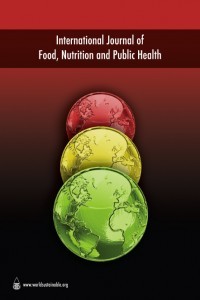

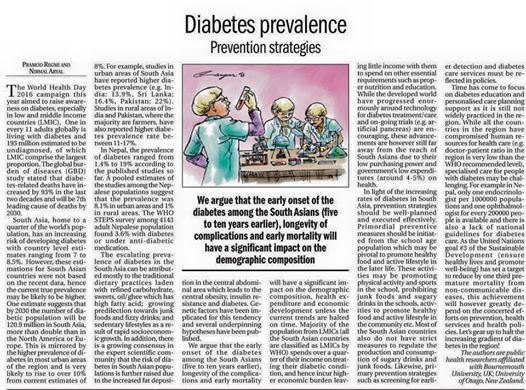
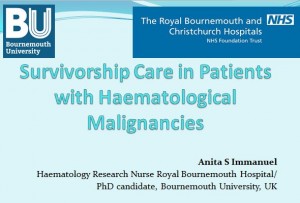
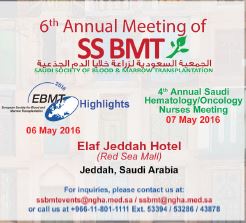

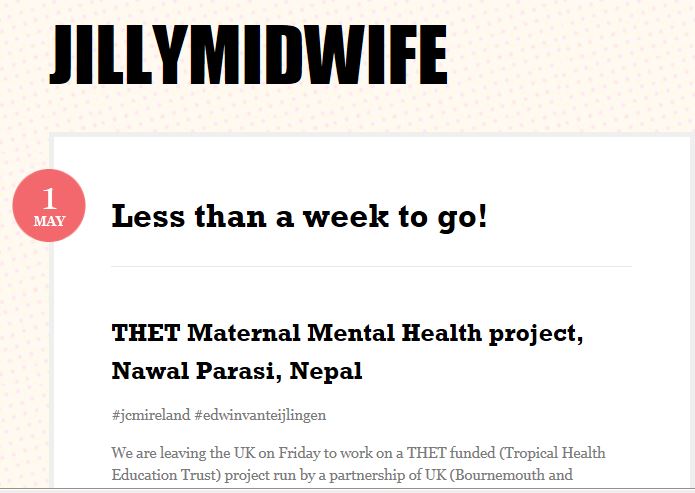
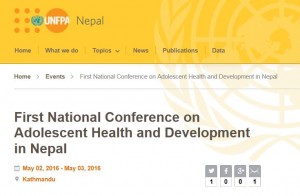

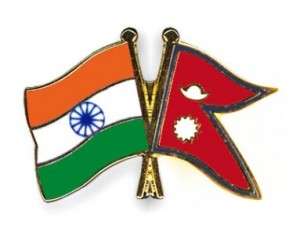
 Dr. Jenny Hall in CMMPH published her latest article ‘Facilitating learning of spirituality in midwifery’ in the academic journal Spiritual Care [1]. She highlights that there has been considerable discussion in the literature around spirituality at the end of life but little relating to childbirth. Perhaps because of this facilitation of learning around the subject is limited. The aim of this article is to raise awareness of these issues and promote future discussion and research.
Dr. Jenny Hall in CMMPH published her latest article ‘Facilitating learning of spirituality in midwifery’ in the academic journal Spiritual Care [1]. She highlights that there has been considerable discussion in the literature around spirituality at the end of life but little relating to childbirth. Perhaps because of this facilitation of learning around the subject is limited. The aim of this article is to raise awareness of these issues and promote future discussion and research.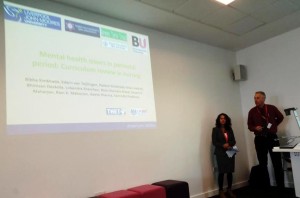
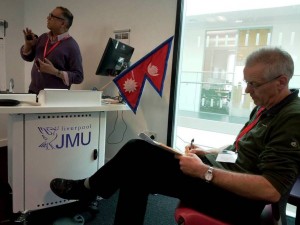

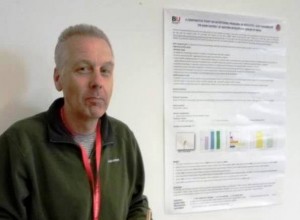
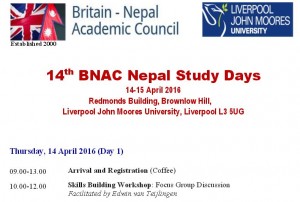
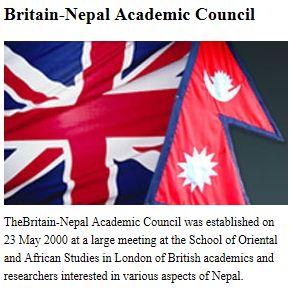
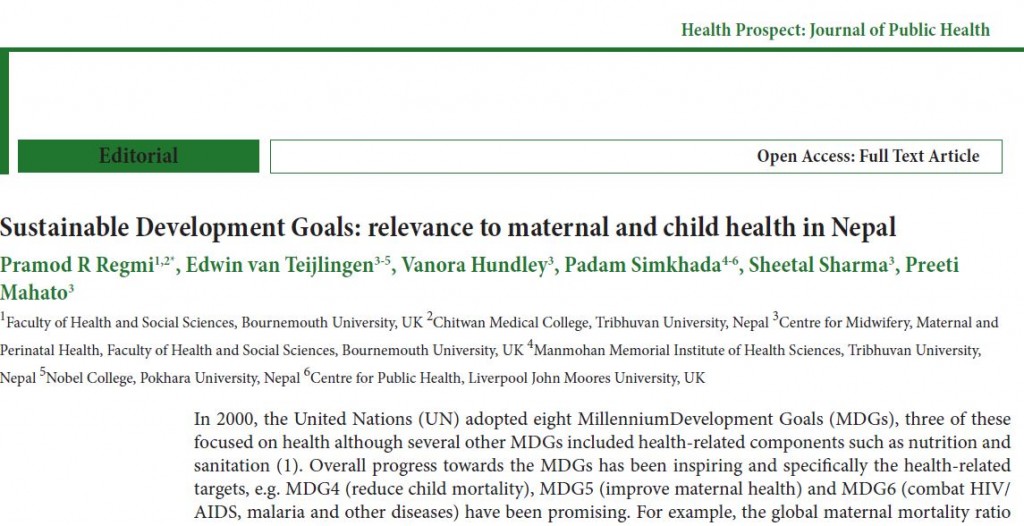

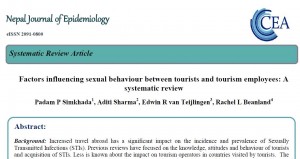
 Since his arrival in the Faculty of Health & Social Sciences last year postdoctoral researcher Dr. Pramod Regmi has been busy getting his publications out. Yesterday saw the latest of his articles appear in print, this time in the latest issue of the Nepal Journal of Epidemiology. The editorial, co-authored with Dr. Om Kurmi (University of Oxford) and Dr. Puspa R. Pant at the University of the West of England, addresses the growing problem air pollution in low-income countries such as Nepal. The paper is called: ‘
Since his arrival in the Faculty of Health & Social Sciences last year postdoctoral researcher Dr. Pramod Regmi has been busy getting his publications out. Yesterday saw the latest of his articles appear in print, this time in the latest issue of the Nepal Journal of Epidemiology. The editorial, co-authored with Dr. Om Kurmi (University of Oxford) and Dr. Puspa R. Pant at the University of the West of England, addresses the growing problem air pollution in low-income countries such as Nepal. The paper is called: ‘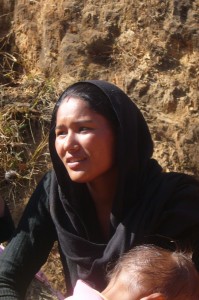
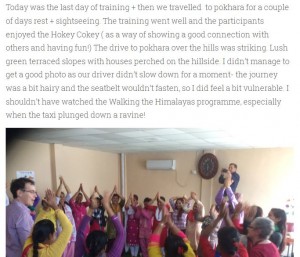
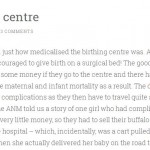

 The April issue of the Journal of Neonatal Nursing will publish the latest article written by a combination of Faculty of Health & Social Sciences staff and Visiting Faculty. The paper ‘Experiences of fathers with babies admitted to neonatal care units: A review of the literature’
The April issue of the Journal of Neonatal Nursing will publish the latest article written by a combination of Faculty of Health & Social Sciences staff and Visiting Faculty. The paper ‘Experiences of fathers with babies admitted to neonatal care units: A review of the literature’ 










 SPROUT: From Sustainable Research to Sustainable Research Lives
SPROUT: From Sustainable Research to Sustainable Research Lives BRIAN upgrade and new look
BRIAN upgrade and new look Seeing the fruits of your labour in Bangladesh
Seeing the fruits of your labour in Bangladesh Exploring Embodied Research: Body Map Storytelling Workshop & Research Seminar
Exploring Embodied Research: Body Map Storytelling Workshop & Research Seminar Marking a Milestone: The Swash Channel Wreck Book Launch
Marking a Milestone: The Swash Channel Wreck Book Launch ECR Funding Open Call: Research Culture & Community Grant – Application Deadline Friday 12 December
ECR Funding Open Call: Research Culture & Community Grant – Application Deadline Friday 12 December MSCA Postdoctoral Fellowships 2025 Call
MSCA Postdoctoral Fellowships 2025 Call ERC Advanced Grant 2025 Webinar
ERC Advanced Grant 2025 Webinar Update on UKRO services
Update on UKRO services European research project exploring use of ‘virtual twins’ to better manage metabolic associated fatty liver disease
European research project exploring use of ‘virtual twins’ to better manage metabolic associated fatty liver disease